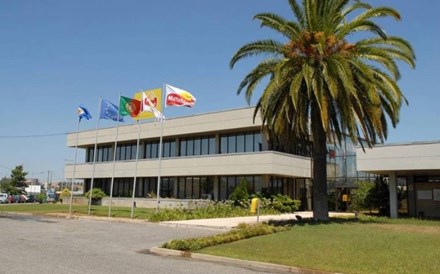PepsiCo Portugal has invested €7.5 million to construct a new biodigester, which will turn organic waste into biogas, reflecting its commitment to sustainability and the reduction of carbon emissions at its snack factory in Carregado.
The biodigester project, which will reduce carbon emissions by 30 percent, is part of the PepsiCo Positive (pep+) strategy for sustainability.
According to Nelson Sousa, PepsiCo Portugal’s plant manager, the new biodigester will have the capacity to convert more than 21,900 tons of organic waste per year into 4,818,000 Nm3 of biomethane per year, which is equivalent to a 30 percent reduction in carbon emissions during the production process”.
Sousa added that the project would let their business unit continue to be a case study of good sustainability practices at a European level and serves as an example of local circularity and reconversion.
The installation will allow PepsiCo Portugal to use the biogas produced during the anaerobic digestion process directly as fuel in the various stages of production and for cleaning the production lines, contributing to cutting gas consumption.
.PepsiCo Portugal’s biodigester will use the sludge produced at the plant’s wastewater treatment plant and potato peelings, as well as other food waste deemed unfit for consumption. This waste is pre-treated and converted into clean organic compost and transformed into biogas.
Fernando Moraga, country manager of PepsiCo in Portugal, said that with the new biodigester, they will operate more efficiently by creating alternative energy solutions.
PepsiCo will begin construction of the biodigester on a separate site next to the Alenquer factory in April 2023, occupying a total area of 420 square meters.



 Nvidia CEO Jensen Huang Says AI Investment Boom Is Just Beginning as NVDA Shares Surge
Nvidia CEO Jensen Huang Says AI Investment Boom Is Just Beginning as NVDA Shares Surge  Drug pollution in water is making salmon take more risks – new research
Drug pollution in water is making salmon take more risks – new research  U.S. Stock Futures Slide as Tech Rout Deepens on Amazon Capex Shock
U.S. Stock Futures Slide as Tech Rout Deepens on Amazon Capex Shock  Alphabet’s Massive AI Spending Surge Signals Confidence in Google’s Growth Engine
Alphabet’s Massive AI Spending Surge Signals Confidence in Google’s Growth Engine  Instagram Outage Disrupts Thousands of U.S. Users
Instagram Outage Disrupts Thousands of U.S. Users  Toyota’s Surprise CEO Change Signals Strategic Shift Amid Global Auto Turmoil
Toyota’s Surprise CEO Change Signals Strategic Shift Amid Global Auto Turmoil  Fed Governor Lisa Cook Warns Inflation Risks Remain as Rates Stay Steady
Fed Governor Lisa Cook Warns Inflation Risks Remain as Rates Stay Steady  Sony Q3 Profit Jumps on Gaming and Image Sensors, Full-Year Outlook Raised
Sony Q3 Profit Jumps on Gaming and Image Sensors, Full-Year Outlook Raised  Parasites are ecological dark matter – and they need protecting
Parasites are ecological dark matter – and they need protecting  SoftBank Shares Slide After Arm Earnings Miss Fuels Tech Stock Sell-Off
SoftBank Shares Slide After Arm Earnings Miss Fuels Tech Stock Sell-Off  Trump Backs Nexstar–Tegna Merger Amid Shifting U.S. Media Landscape
Trump Backs Nexstar–Tegna Merger Amid Shifting U.S. Media Landscape  Singapore Budget 2026 Set for Fiscal Prudence as Growth Remains Resilient
Singapore Budget 2026 Set for Fiscal Prudence as Growth Remains Resilient  FDA Targets Hims & Hers Over $49 Weight-Loss Pill, Raising Legal and Safety Concerns
FDA Targets Hims & Hers Over $49 Weight-Loss Pill, Raising Legal and Safety Concerns  TrumpRx Website Launches to Offer Discounted Prescription Drugs for Cash-Paying Americans
TrumpRx Website Launches to Offer Discounted Prescription Drugs for Cash-Paying Americans  LA fires: Long-term exposure to wildfire smoke is poorly understood − and a growing risk
LA fires: Long-term exposure to wildfire smoke is poorly understood − and a growing risk 































